Olympiads, NEET, JEE or many other exams like CLAT, CAT, Bank PO etc. are objective type exams containing multiple choice question.
Objective type exams on side are easier when compared to essay type exams as
- The answer is guaranteed in the given option
- Almost 40% questions are fact based or definition/principal based
- Guessing can also fetch you marks
- Less risk as compared to essay type questions as the question value is less (five question – five marks in MCQ based test while 5 mark for one question in essay based test)
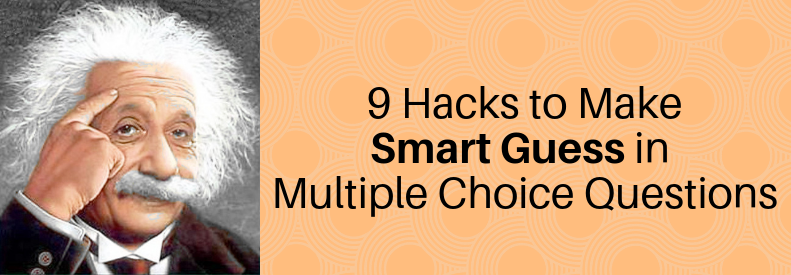
But there are some facts that make MCQ based tests actually tough:
- Number of questions in MCQ based test is more hence more coverage of syllabus required. Students have to study each and every topic to prepare for these exams.
- Questions are more fact based hence students have to be more accurate in date, time, formula figures, etc
- Sometimes choices are so narrow that even a fully confident student gets confuse while answering
- Most of the MCQ based questions carry penalty for attempting wrong answer which is not there in essay type exams
- There is “all or none” or “marks or penalty” rule applied
- Since checking is computer-based there is no scope of grace marks 😊
Thus, preparation and attempt of MCQ based exams need special attention. No matter how hard you have studied and prepared, the selection of wrong answer in MCQs can ruin your yearlong hard work and even your carrier. Many times, the choices may appear similar and confusing. In such cases we can guess the correct option depending on various factors. But blind guessing is never going to help you in JEE paper or in any exam. It only discourages you at the end, nothing else! But then again if you are able to make smart guess in multiple choice questions and reach the correct answer you will be at the safer zone. Here in this article we are explaining you 9 clever hacks to make smart guess in multiple choice exams. These methods only help those who have learnt the entire syllabus and needs a little support in arriving the correct answer.
1. The Elimination Method
Eliminating options is a wonderful hack to make smart guess in multiple choice questions when you are not sure about the right answer. Each MCQ in an exam has 3 or 4 possible options. And every question has an option which basically screams “Of course I’m not right”. Hence, reduce the number of options by eliminating the ones which seem to be entirely out of chance. It helps you to narrow the question to at least three or, if you are lucky, to two options. And your chance of guessing correctly will become 50 % or better.

In this question both acid and base are weak. This is a buffer solution as you have studied. And the Ph value of such solution would be approx. 7. So, option b) will be incorrect as it is for strong acid and option d) will also be incorrect, as it is for strong base. Now you have 2 options left a) and c). And option c) is very close to Ph 7. So, option c) is the right answer.
2. Check the Dimensions:
This technique plays an important role in solving Physics MCQs or numerical. You can filter options by looking at their dimension. Suppose in the question you are asked to find the correct equation of time period. Now, you know that the dimension of time is ‘second’, so only those options may be correct which have dimension of time i.e. second. And you can blindly reject the options without m/sec as dimension. In the given example, since the wavelength to be measured in A, option c and d are wrong.
Must Read: physics numericals for neet

3. Start from Options:
Sometimes it is easy to start with the given options. You can put the values given in the options of the question to reach out at the correct option. This is also one of the most important techniques you can use in your examination. You can also use short cut tricks to solve the problems and arrive at the correct answer in less time.
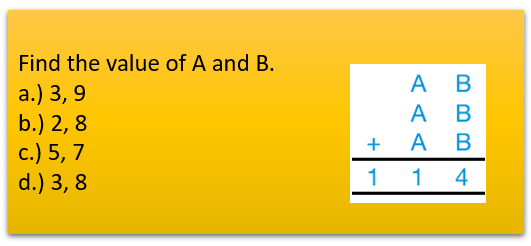
4. Avoid highest and lowest Outliers
Outliers means options having extreme values. If your test paper has any question which have options in numerical values, then remove the options that seem extreme. For example, if a question involves some calculations and the options provided are a) 9 b) 57 c) 60 d) 950; then eliminate the options a) and d) and take a guess from the remaining two options i.e., b & c. Although if two alternatives are opposite each other then one of them is probably correct.
5. Questions with options like “all of the above”
You may check options like ‘all of the above’. If you are able to verify 2 options and All of the above is also a choice then there are high chances that “All of the Above” will be the answer.

6. Grammatical errors:
Examiners and verifiers are more concentrated on the correct choice and hence incorrect answer may have grammatical errors. In case of incomplete sentence question stems the option which grammatically fits in continuation is supposed to be the correct answer. If the stem ends with the indefinite article “an,” for example, then the correct response probably begins with a vowel.
7. Funny Responses
It has been observed that sometimes one of the options is a funny one. Such options are usually added when examiner is not getting more options to add. Usually funny responses are wrong answers.
8. Longest response could be the right answer
In some questions you would have seen one option is very long. There is high chance this option is the correct as examiner tends to meet the requirements making is right.

9. Absolute Words and Conditional Words:
Responses that use absolute words, such as “always” or “never” are less likely to be correct than ones that use conditional words like “usually” or “probably.”
None of these strategies to make smart guess in multiple choice questions is foolproof. A smart examiner will avoid creating questions for which these strategies work, but you can always hope for a lapse of attention.
These strategies are just to narrow down your options and come up with the best possible guess. The best approach, though, is to study and be prepared for the test in order to avoid any wrong guessing. You need to make your concepts clear and make your foundation strong which can be best achieved.
We recommend MTG books for Olympiads, JEE, NEET, Bank Exams as these books prepare you best for exam. The chapters in the books are supported by comprehensive theory, shortcut tricks, ample exercises, concise flowchart and tabulated information, self-explanatory diagrams. All these elements empower conceptual clarity of a students and build a level of confidence in them. Hence MTG books reader don’t require to make guesses in the exams.
All the best!

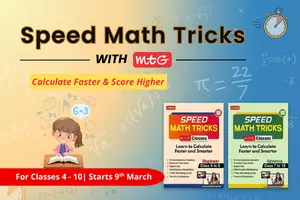

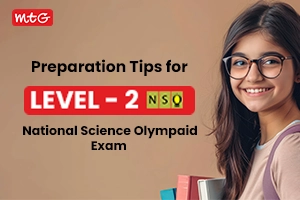
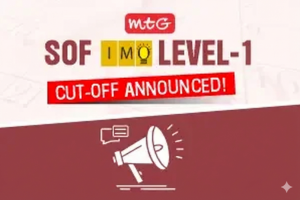
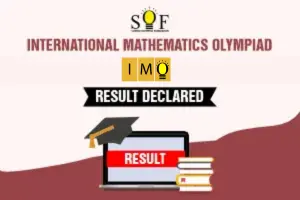



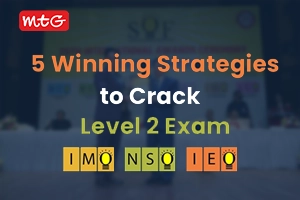














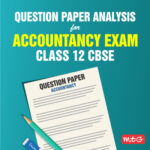


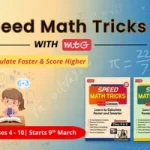


Yes, this is a Good one
Excellent